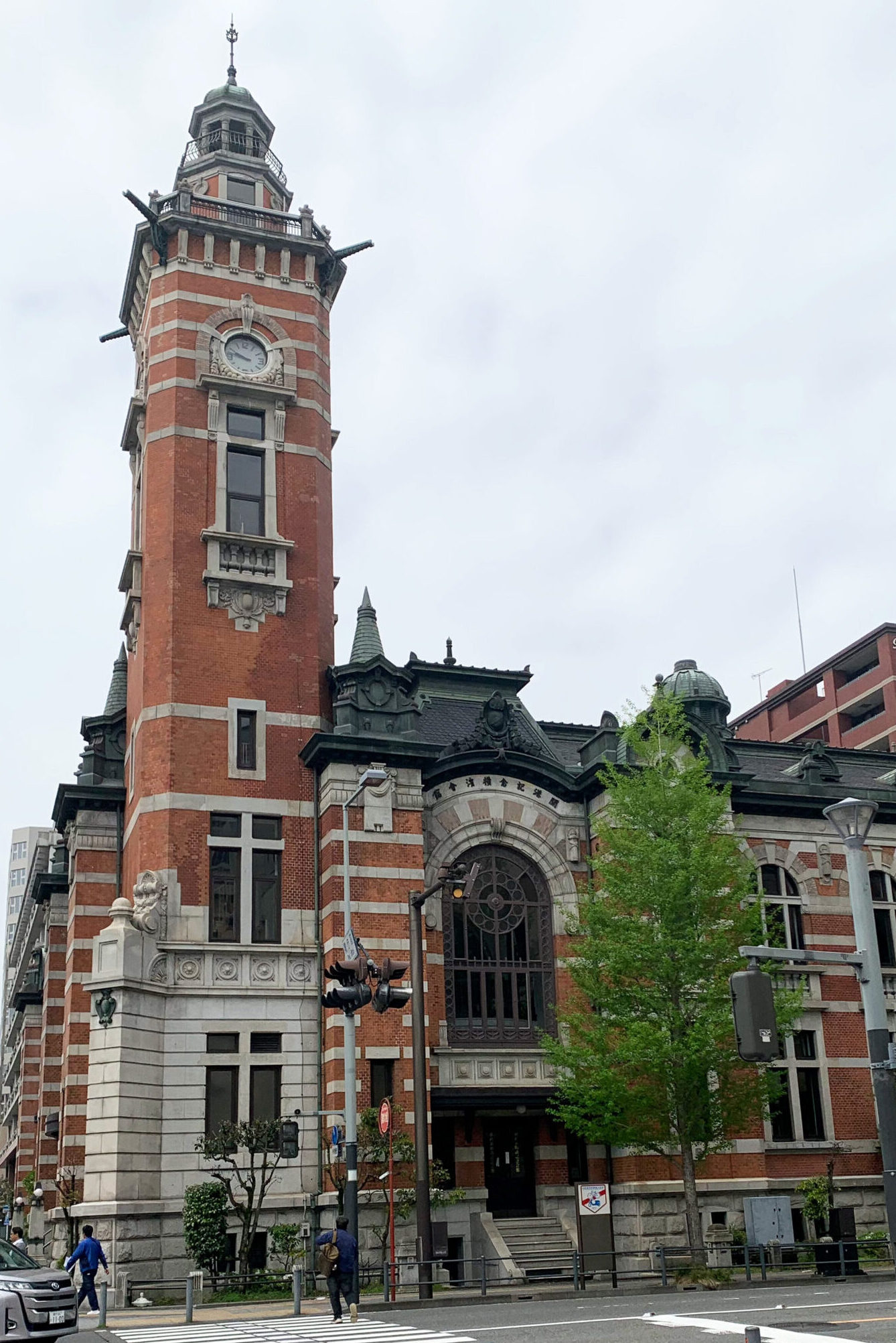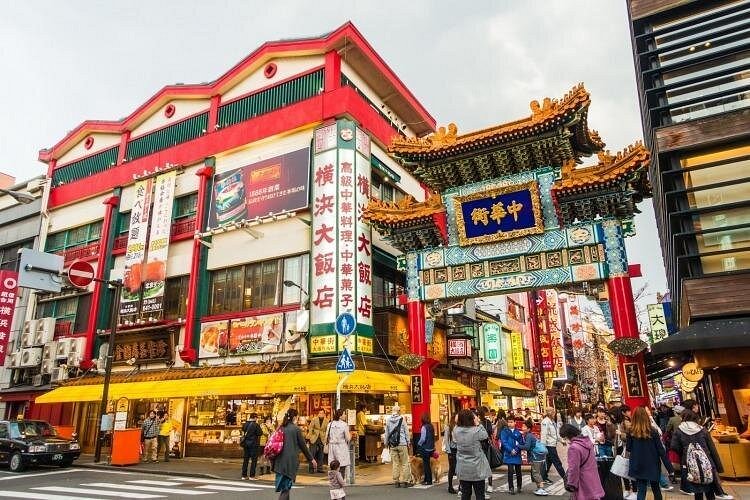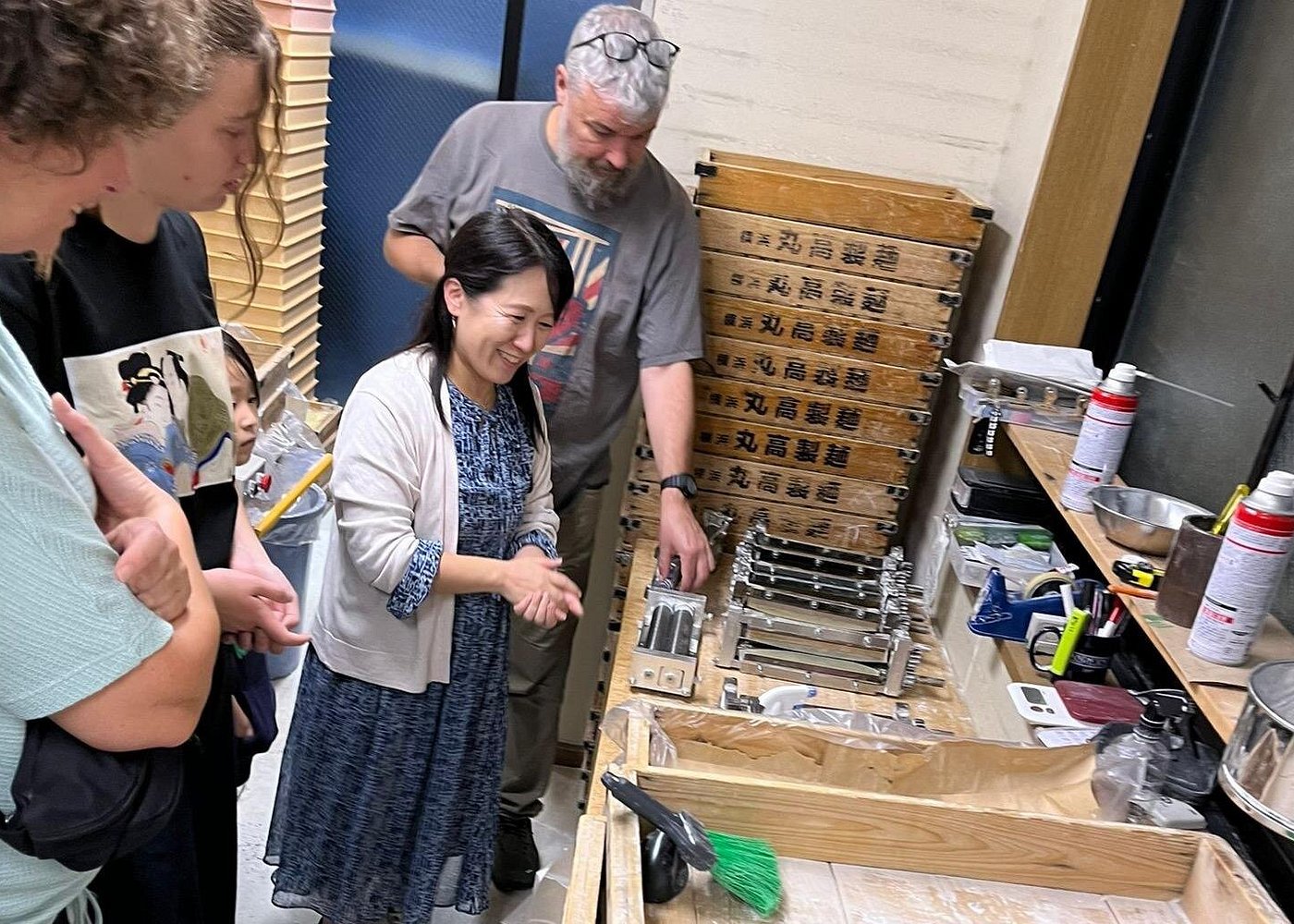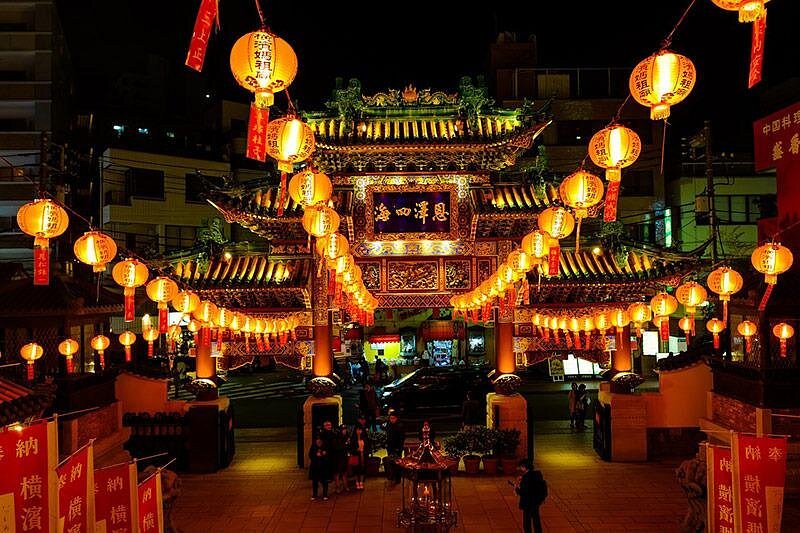
This time I went a bit farther out to Yokohama. That said, Tokyo’s so stretched out sideways that even though Yokohama’s technically not part of Tokyo, it’s only about a 30-minute ride away — way closer than heading out west in Tokyo.
Sometimes I just wanna feel the ocean breeze, you know? Tokyo Bay’s more like an inland sea, so it’s different.
I grabbed some street food while wandering around Chinatown — stuff you can’t really get in Tokyo.
The people in Chinatown, and the visitors too, were all super chill. With my big smile and wagging tail, I managed to score all sorts of good stuff.
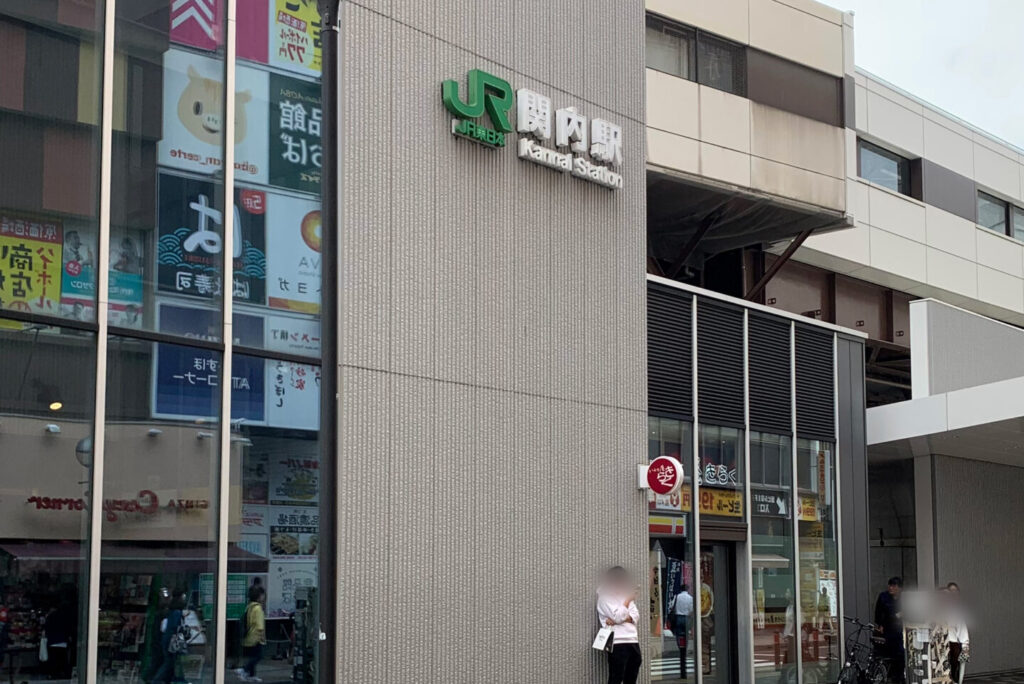
A. Start Walking from Kannai Station, Yokohama
Today’s strolling around Yokohama starts at Kannai Station on the JR Negishi Line (marked as A on the map). To get to Kannai Station, hop on the Tokaido Line from either Tokyo Station or Shinagawa Station, then transfer at Yokohama Station. From Yokohama Station, it’s just two stops down the Negishi Line!
Once you step out of the station, today’s first stop is Yokohama Chinatown! If you’re looking for a station that’s even closer, you can also hop off at Motomachi-Chukagai Station on the Minatomirai Line (marked as ❶ on the map).
B. Yokohama Chinatown, the Biggest Chinatown in Japan
Did you know that until the late 19th century, Japan had a policy called Sakoku, where the country was completely closed off from the rest of the world? When the Age of Exploration kicked off around the world, Japan finally opened its doors under pressure from foreign powers, and trade with other countries began. Yokohama was one of the first ports to open to the world during that time, and it quickly became a hub for people from all over, including China.
Many Chinese immigrants ended up settling here permanently, and that’s how today’s Chinatown came to be. These days, it’s known as a place packed with amazing Chinese restaurants. So while you’re here, soak up the lively atmosphere—and don’t forget to grab a few tasty Chinese snacks along the way!
Front Gate of Yokohama Chinatown
In Chinatown, you’ll spot gates like the one in this photo (marked as B on the map) marking the edges of the area. They were built based on the teachings of Feng Shui (風水), a traditional Chinese belief, to protect the prosperity of the neighborhood and manage the flow of natural energy, or Qi (気).
As you wander around the streets, you can hunt for souvenirs, snack on some treats, and if you’re in the mood for a full meal, there are tons of great restaurants to choose from!
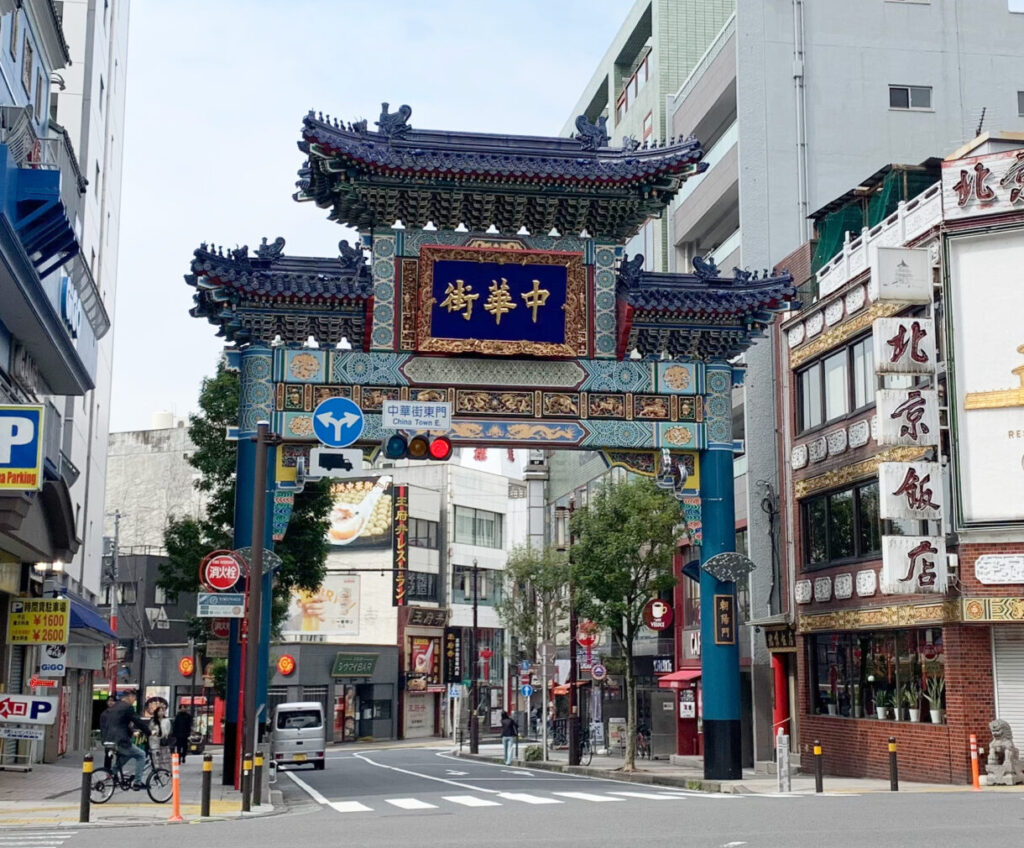
Detour Point ❷ : Peking Duck, Chukagai Daihanten
When it comes to the pinnacle of Chinese cuisine, you can’t beat Peking Duck. It’s an ultra-luxurious dish where you enjoy just the crispy skin! Here, they’ve made it easy for you to grab and enjoy on the go. Definitely give it a try! (marked as ❷ on the map)
You can grab the snack version only at the front of the shop. If you want the full experience, head inside to the restaurant!
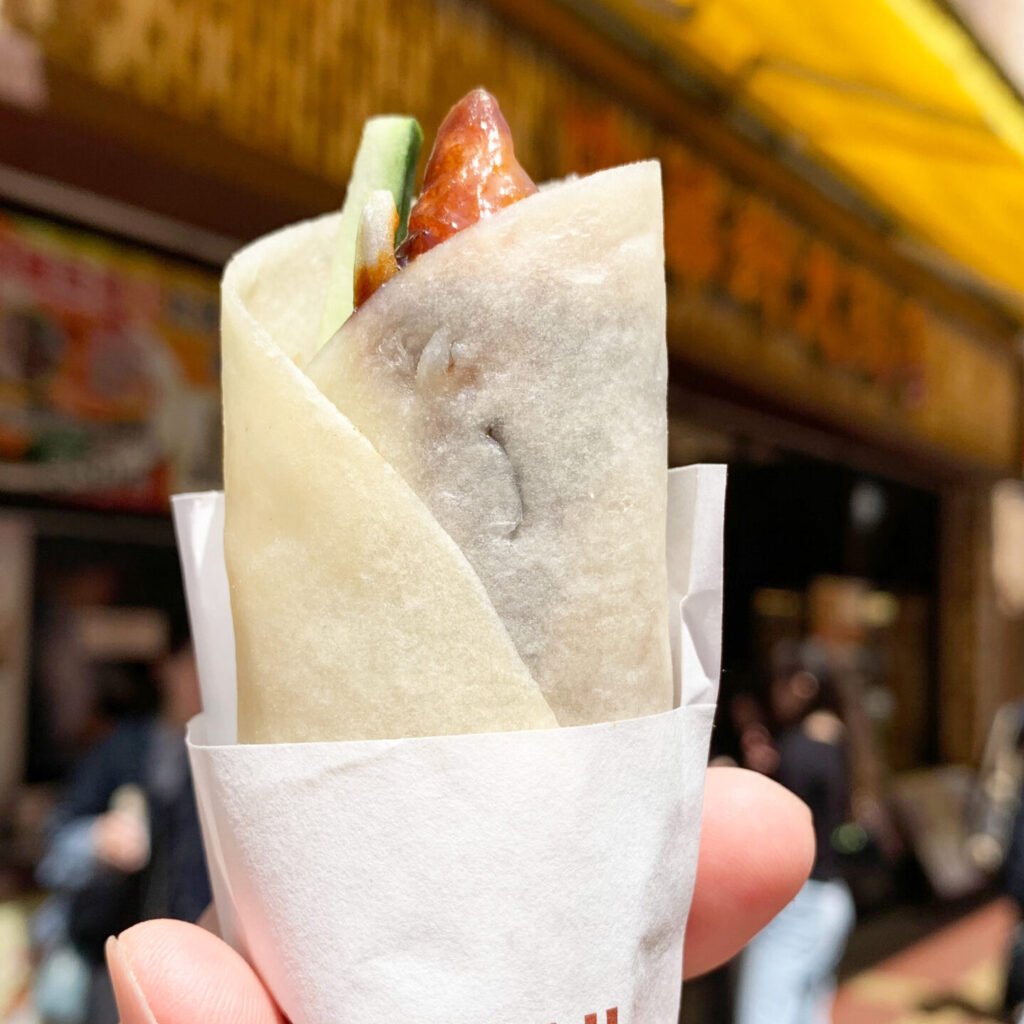
Detour Point ❸ : Hedgehog Bun, Yoseigo Baiten
If you’re looking for something that’s perfect for a photo, a Hedgehog Bun is a great choice! It’s small enough to pop in your mouth, and the custard filling spreads deliciously as soon as you bite into it. You might even feel a little guilty because it’s so cute… Sorry about that! (marked as ❸ on the map)
Since this shop specializes in Chinese ingredients, it might be fun to wander around and see if there’s anything else interesting to check out.
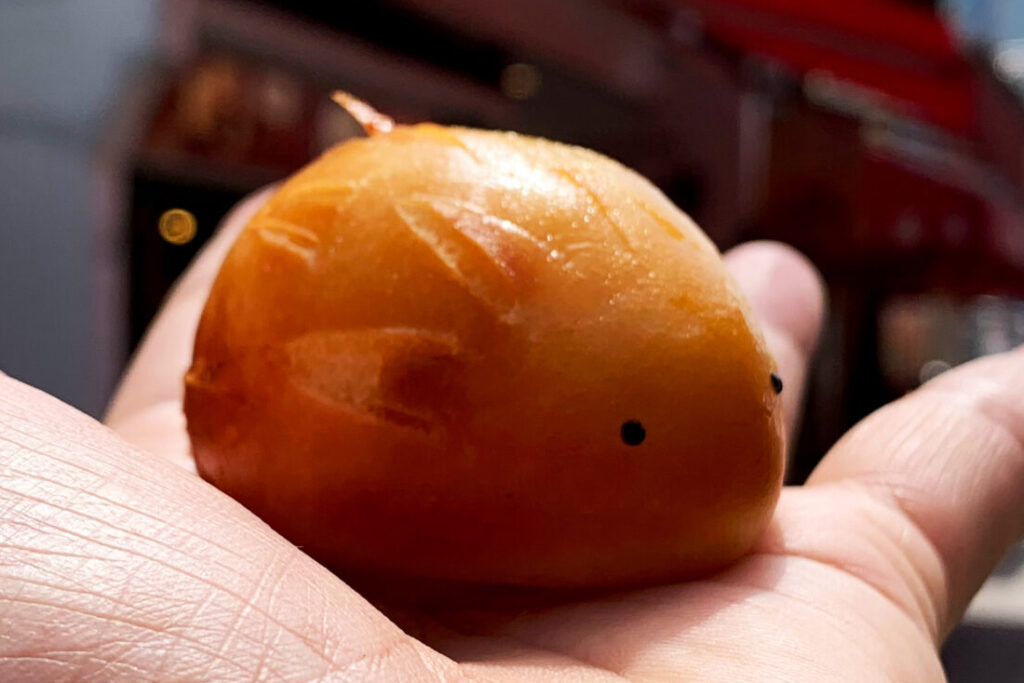
Detour Point ❹ : Large Soup Dumplings, Kaikarou
If you love Soup Dumplings, this is the place to go! (marked as ❹ on the map)
First, you’ll be surprised by how big it is! Then, have you ever almost burned your tongue from the hot broth inside the dumpling? Don’t worry, not here. First, sip the broth through a straw, then take a bite.
Perfect with a cold beer or something to drink!
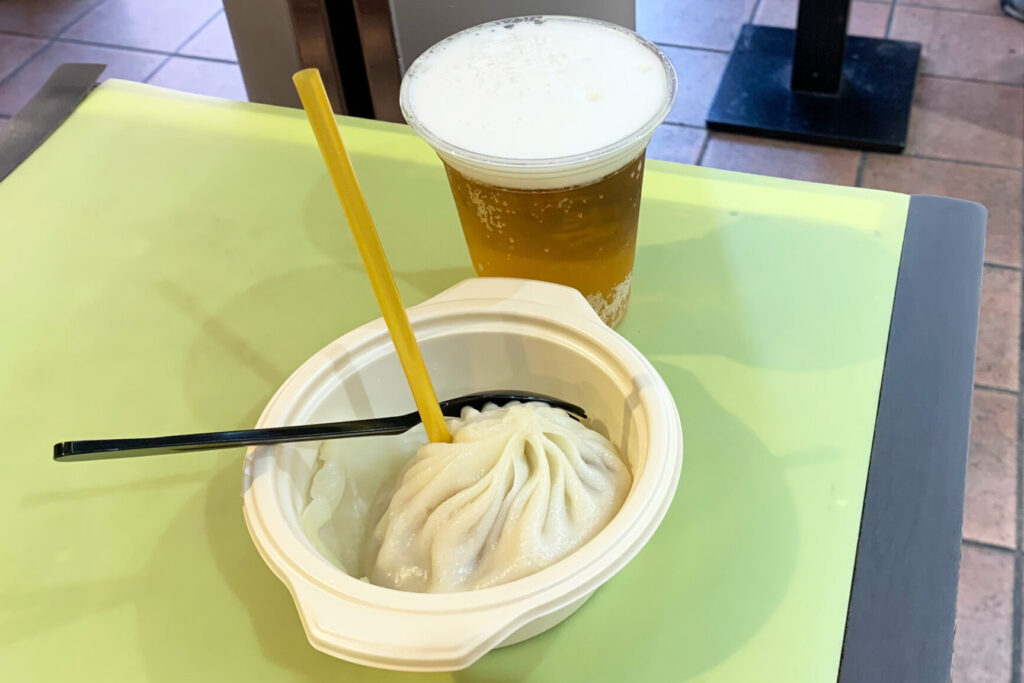
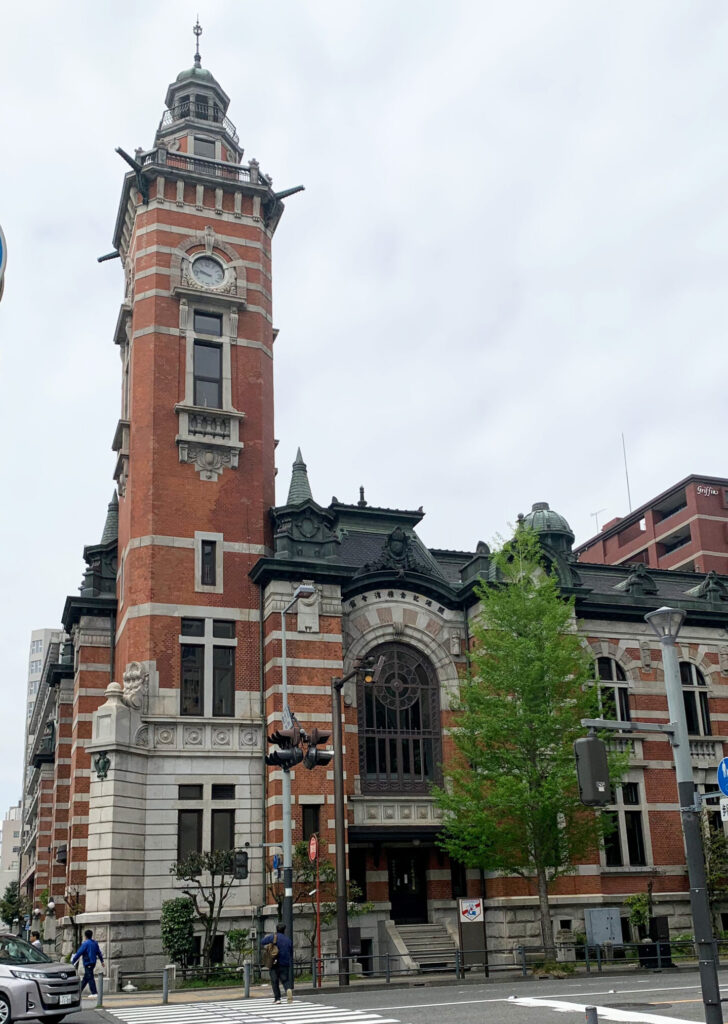
C. Yokohamashi Kaiko Kinen Kaikan (Jack’s Tower), Landmark Building in Yokohama
To commemorate Yokohama’s development into an international port city in the late 19th century, Yokohamashi Kaiko Kinen Kaikan was constructed in 1917. (marked as C on the map )
As a piece of architecture from that era, it holds great historical significance and has been designated as an Important Cultural Property of Japan.
Its classic exterior is truly worth seeing — don’t forget to snap a photo while you’re here!
Today, the building serves as a public hall, and you can even rent out the auditorium and meeting rooms.
Now that you’re in Yokohama, it’s time to head over to the port area! You’ll definitely get a real sense of one of Japan’s top port cities, and you’ll find plenty of beautiful classic buildings still standing along the waterfront.
D. Yamashita Park along the Waterfront
Stretching about 700 meters along the waterfront, Yamashita Park (marked as D on the map) offers great views of Yokohama’s port and makes for a perfect, relaxing stroll. The park is filled with flowers, and on weekends, you’ll often see street performers showing off their skills. If you’re looking for a laid-back spot in Yokohama, this is definitely one of the best!.
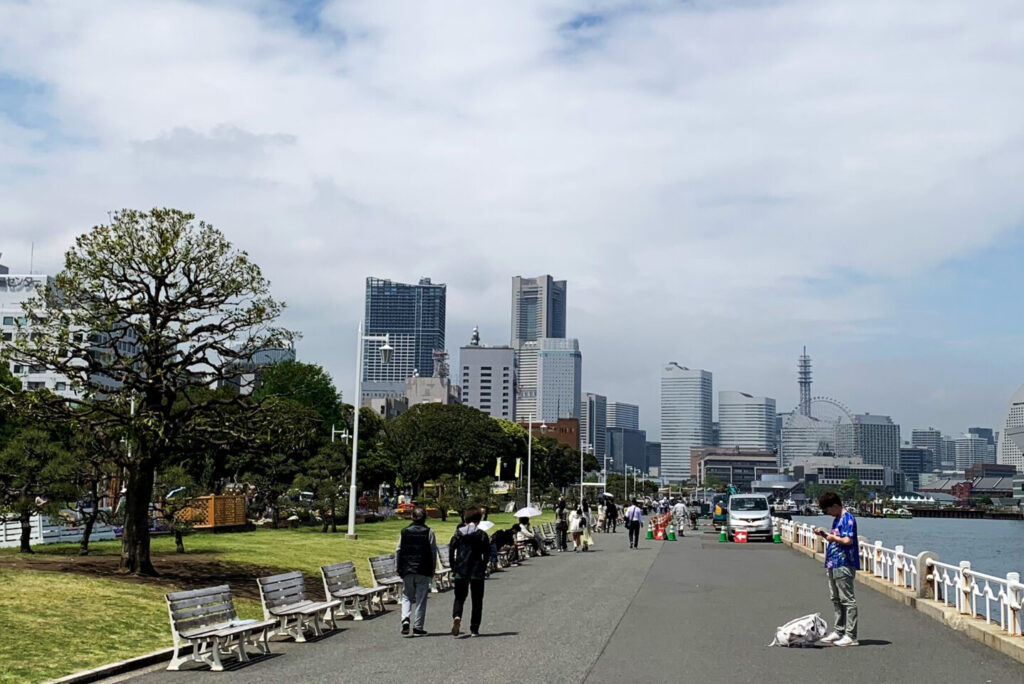
As you stroll through the park, you might come across this statue. It’s based on a very famous Japanese children’s song. (marked as ❺ on the map)
“A little girl in red shoes was taken away by a foreigner”
The song’s somewhat melancholic melody adds to its bittersweet feel, and for many Japanese people, it’s a tune that instantly brings Yokohama to mind.
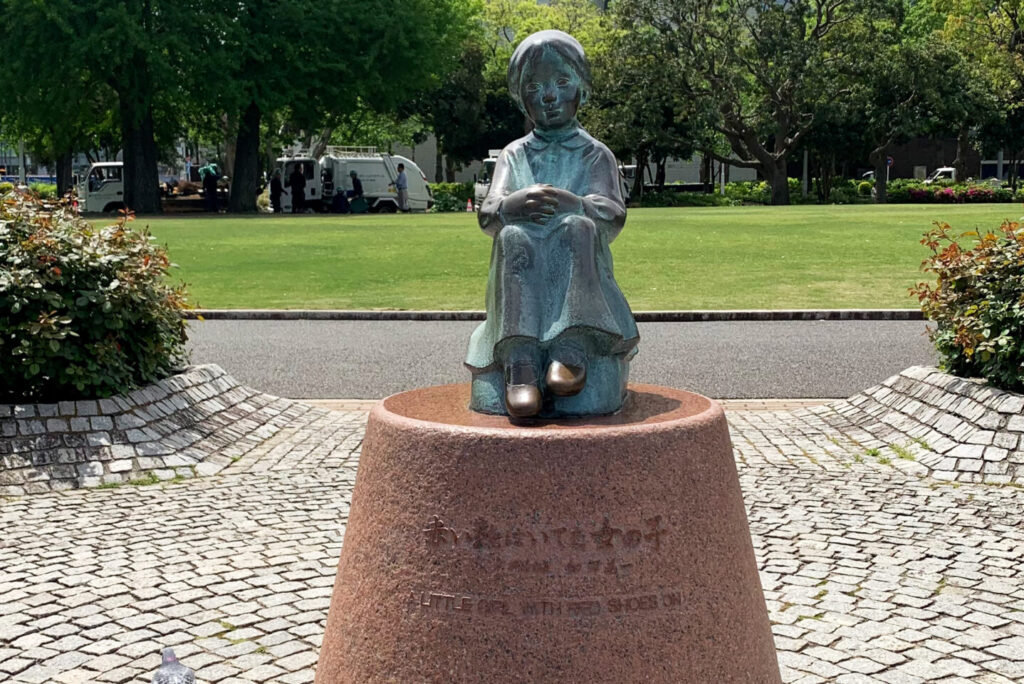
At the western end of the park, you’ll find an entrance to Yamashita Seaside Promenade like this photo. It leads to a walkway built along the waterfront, where you can enjoy great views of the port area from a elevated spot. (marked as ❻ on the map)
Be sure to take a stroll and check it out!
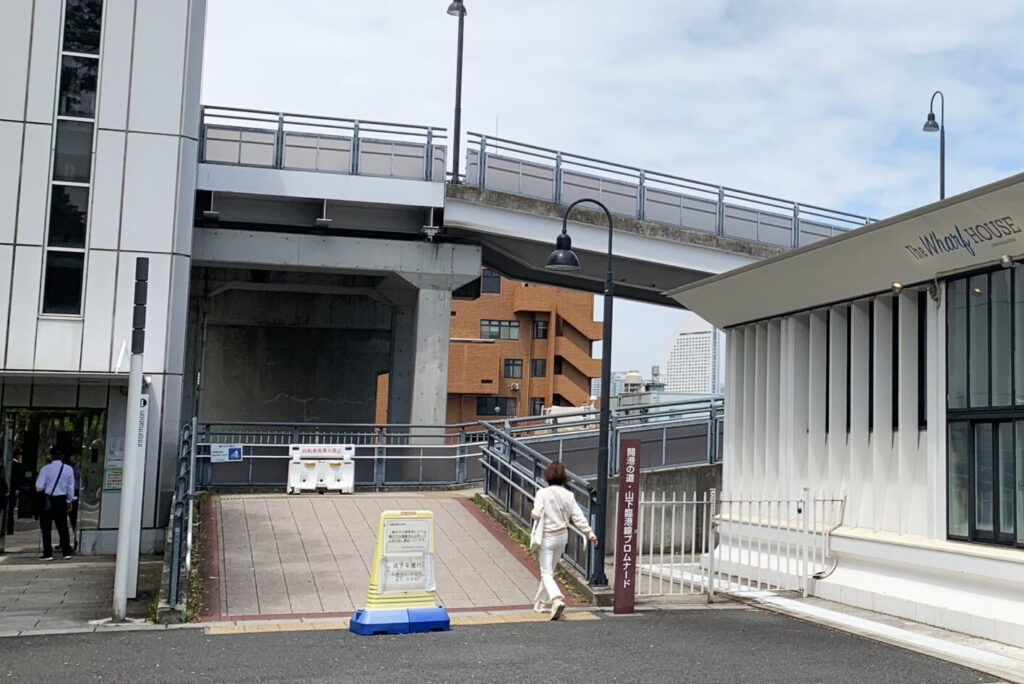
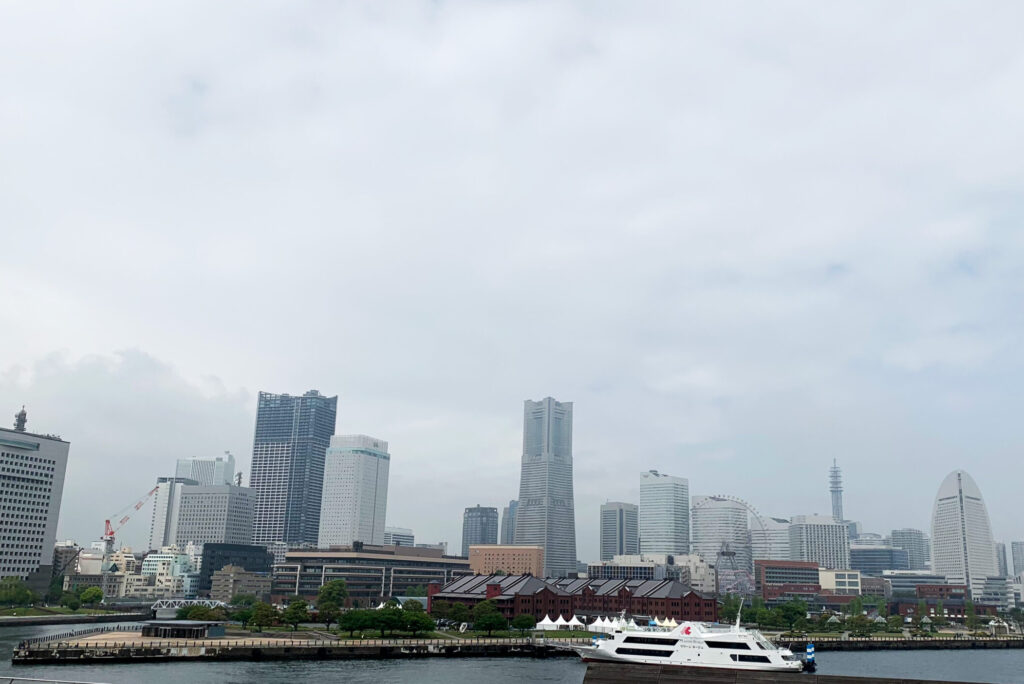
E. Yamashita Seaside Promenade, Perfect Spot to get a Great View
Walking along the promenade, not only can you enjoy great views of Yokohama’s port, but you’ll also see classic buildings on the opposite side. It’s definitely one of the best spots to really get to know Yokohama. (marked as E on the map).
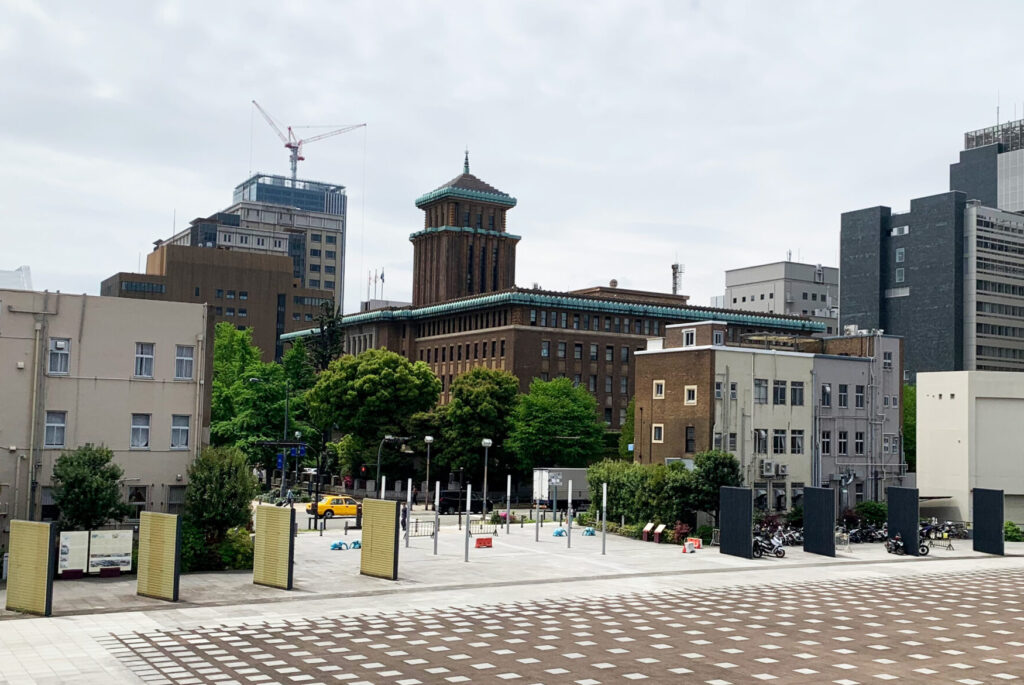
From the promenade, you can get a full view of the building. This classic building is currently used as the Kanagawa Prefectural Government Office.
PR Enjoy China Town & Yokohama
Yokohama 4hr Private Tour with Government-Licensed Guide presented by Viator;
F. Yokohama Red Brick Warehouse, History meets Modern Life
As you reach the western end of the promenade, you’ll come across this building — Yokohama Red Brick Warehouse. (marked as F on the map)
In the old days, it was used as a customs warehouse, but the beautiful, classic structure has been transformed into a space with restaurants, boutique shops, and event halls.
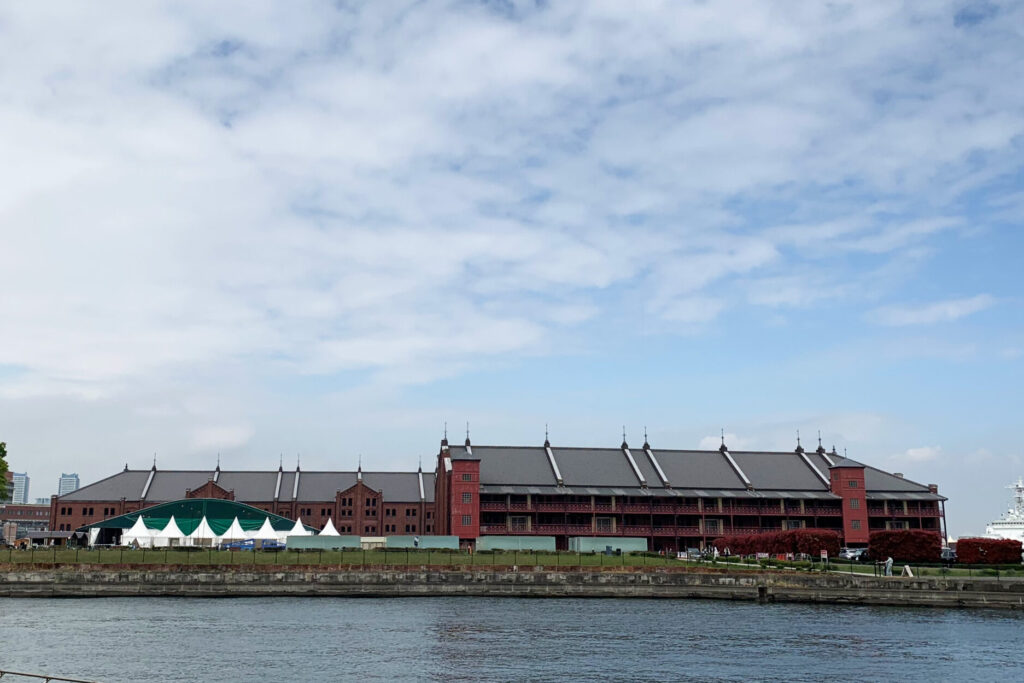
It’s a great spot to take a break if you’re feeling a bit hungry, or to browse for souvenirs.
And of course, just taking in the charm of the building’s exterior is highly recommended!
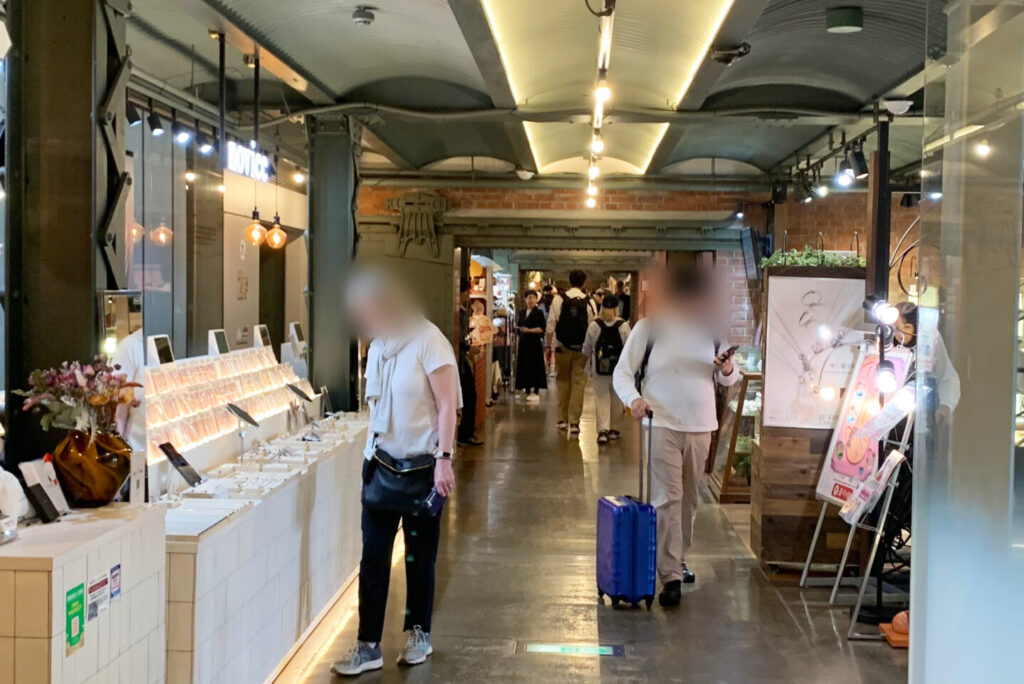
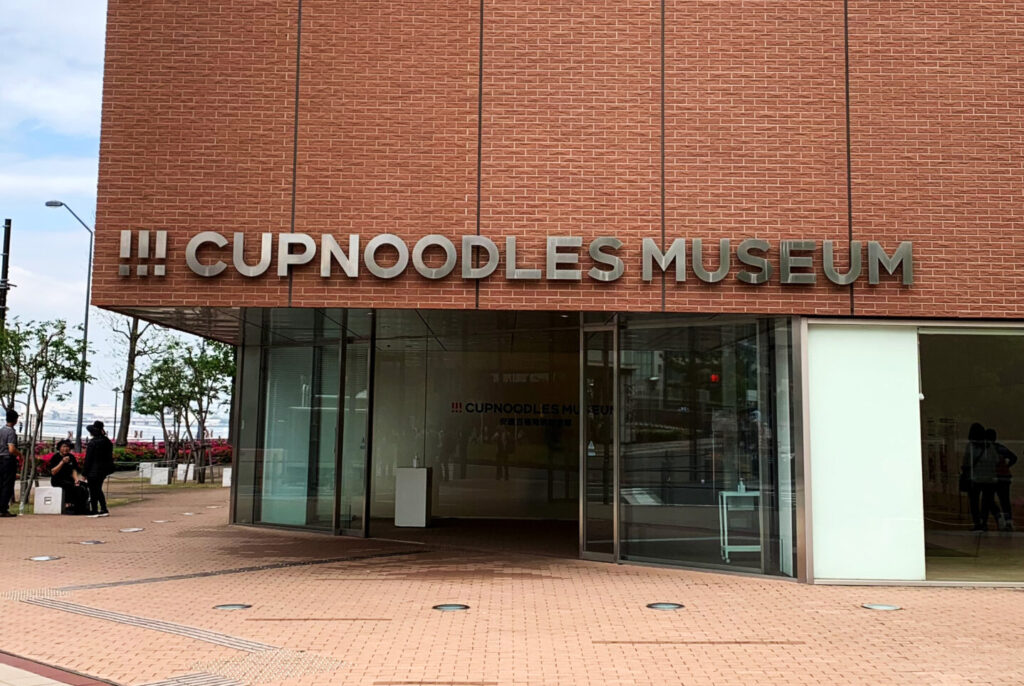
G. CUPNOODLES MUSEUM YOKOHAMA, Instant Noodles – One of the Greatest Inventions of Our Time!
When it comes to Japan’s top three modern inventions, there could be a lot of debate, but many would not disagree about including cup noodles.
If you visit Yokohama, CUPNOODLES MUSEUM YOKOHAMA, which commemorates the invention of this iconic creation, is a must-see. It’s not just a museum to look at — it’s also a fun experience you can enjoy!
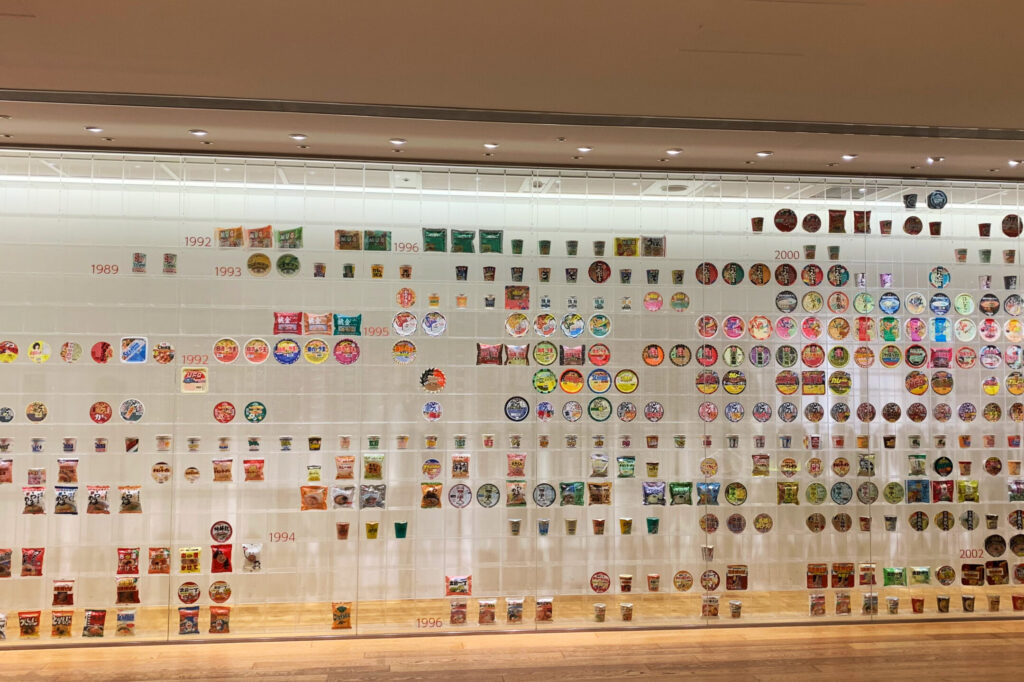
2F World Instant Noodles and Cup Noodles
You’ve probably seen instant noodles and cup noodles sold at supermarkets in your town. Here, you can find exhibits of products sold around the world. From the very first product made in Japan to the ones sold in your local stores, you can explore them all here!
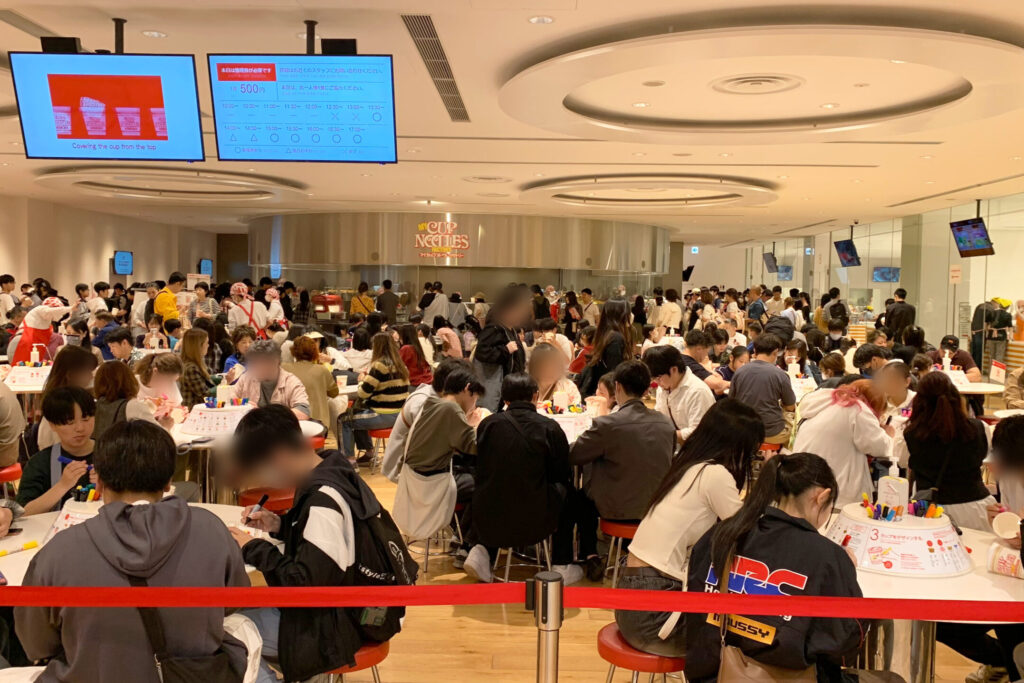
3F My Cup Noodle Factory
At the workshop, you can create your very own one-of-a-kind “Cup Noodles.” You can design your own cup, choose your favorite soup from four options, and pick four toppings from a selection of twelve ingredients!
If there are available spots, you can join on the day, but since it’s quite popular, it’s recommended to make a reservation in advance.
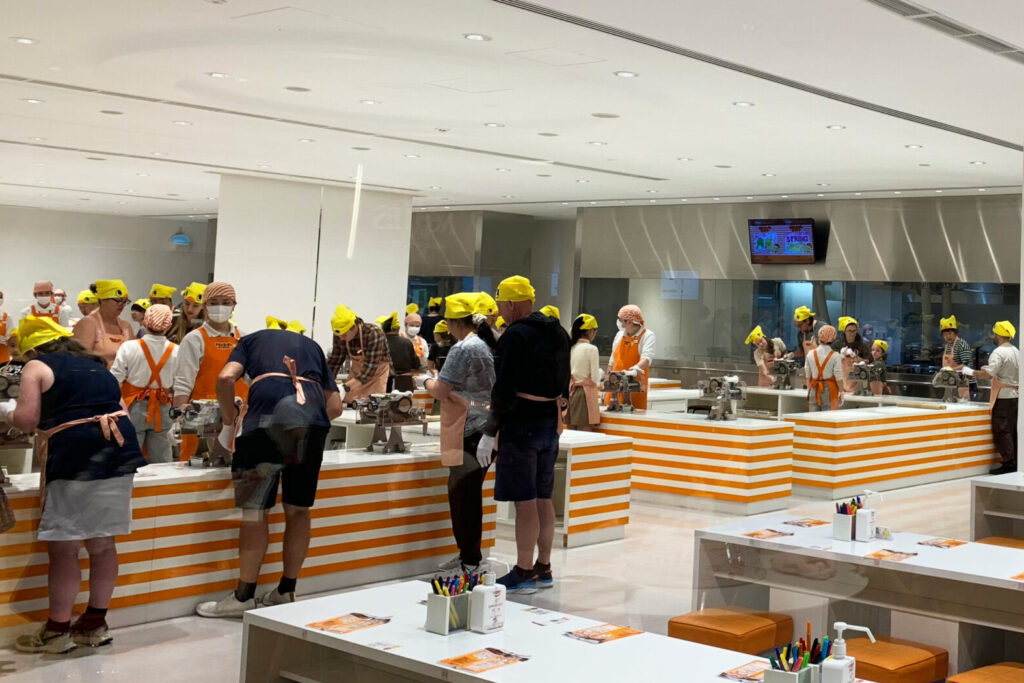
3F Chicken Ramen Factory
At the workshop, you can make your own “Chicken Ramen” from scratch. You’ll knead and roll out the dough, steam it, season it, and then experience the drying process — all while having fun!
Reservation in advance is required to join.
PR Enjoy Ramen Adventure
Yokohama Ramen Adventure From a Local Noodle Factory to Home presented by Viator;
Detour Point ❼ : Yokohama Small World
On your way back from the CUPNOOLES MUSEUM, if you still have time and are with elementary school kids, stopping by Yokohama Small World (marked as ❼ on the map) could be a great idea.
In the evening, after the sun sets, taking a ride on the Ferris Wheel to enjoy the night view of Yokohama might be a special experience for adults too.
Entry is free, but you’ll need to pay for each attraction.
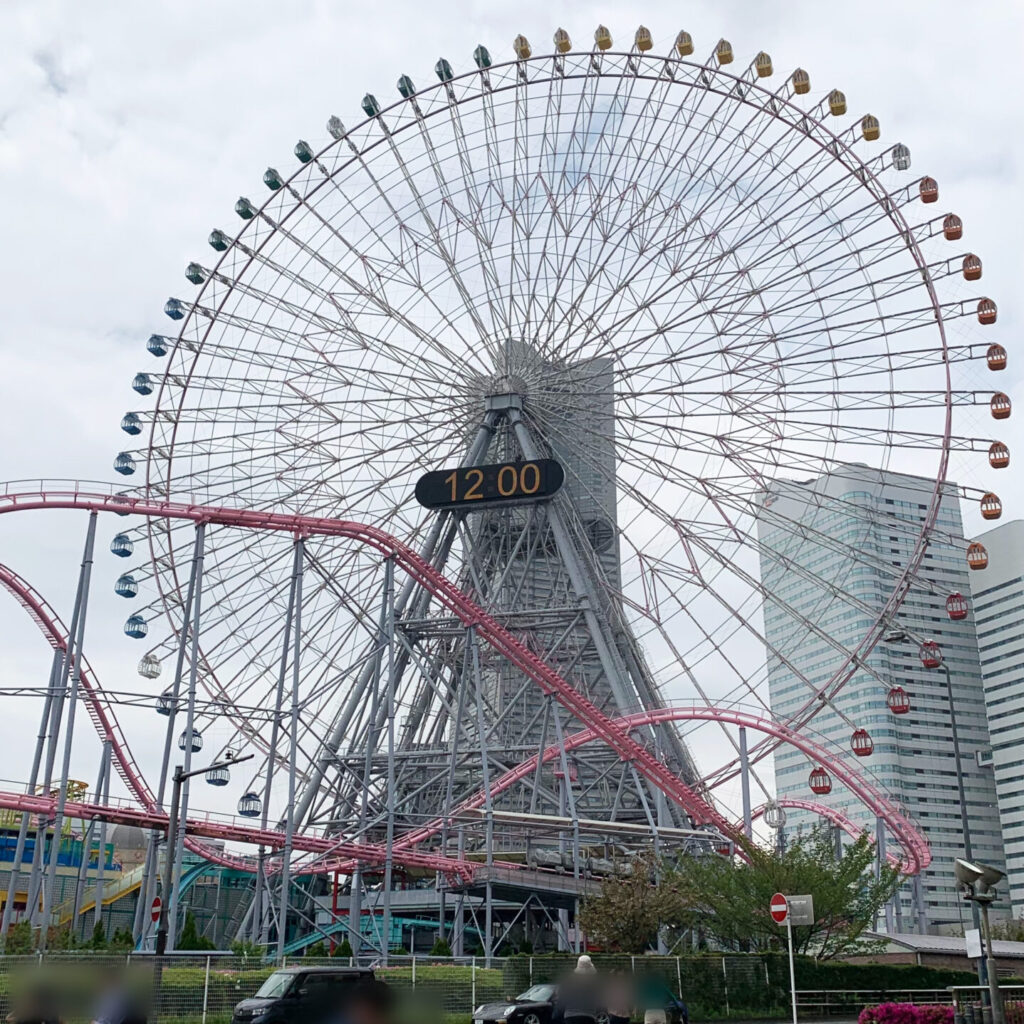
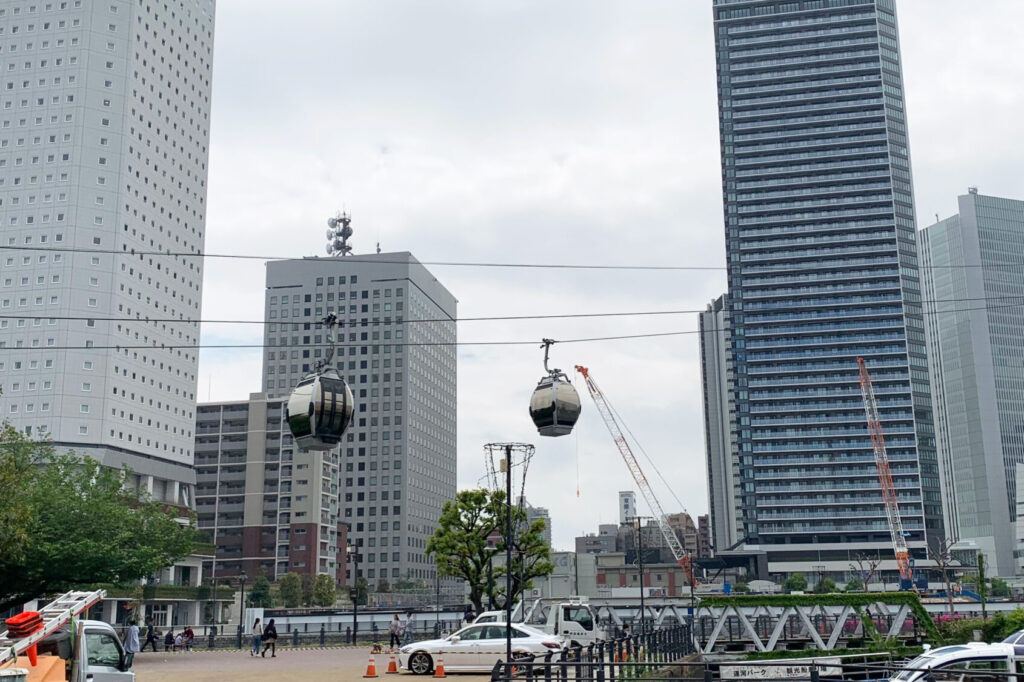
H. Yokohama Cabin, Urban Ropeway to JR Sakuragicho Station
It is recommended to take the ropeway, Yokohama Cabin, (marked as H on the map) to the nearest station, JR Sakuragicho Station (marked as I on the map). You can enjoy the view of the route you walked earlier from above and maybe even reflect on your day.
JR Yokohama Station is right next to Sakuragicho Station, so it’s easy to head back to Tokyo from there.
PR Enjoy Vibe Japan
Eat Like a Local in Yokohama Walking Tour with Local Expert Guide presented by Viator;

There’s always a good breeze blowing through Yokohama. The wind from the Pacific feels special, and for a long time, this was the first place where new ideas from around the world landed in Japan. Maybe you can still catch a bit of that fresh, youthful spirit from about 200 years ago, when Japan first set out into the rough seas of the world.
When night falls, it’s a good idea to head back to Chinatown and chat about the day. Would be nice if someone treated me to a drink, too!
